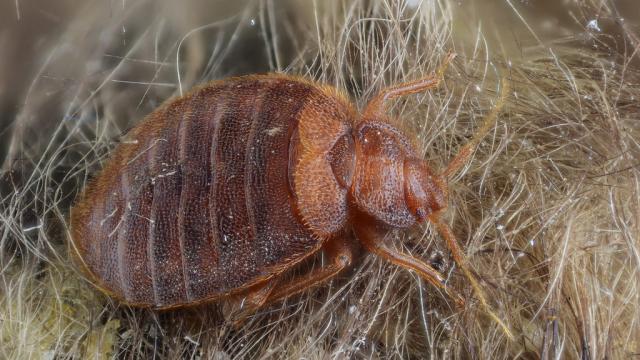Bed bugs are bed bad. People’s entire lives have been overturned by these (increasingly common) blood-sucking, itch-inducing pests. Thankfully, they’re not disease vectors, but I would rather not share my home with a roommate who wants to eat me, thank you very much.
Image: Gilles San Martin/Flickr
Scientists have noticed an expansion in bed bug cases across the world, in no small part due to increased international travel. But one team wanted to know how the bed bugs managed to hitch a ride, and how to prevent the spread. It turns out that part of the answer lies with the dirty laundry inside your travel bag.
“There are a lot of good studies out there focused on trying to understand how bed bugs are attracted to humans and how they get around apartment blocks, but no one has really talked about how they get into the house in the first place,” study author William Hentley from the University of Sheffield in the UK told Gizmodo. “Stopping people from bringing bed bugs home can be a big step in preventing them spreading throughout the world.”
Scientists already know that human odor attracts bed bugs, though not which chemicals in the odor specifically. But for the newest study, researchers prepared a mock bedroom with laundry bags containing clean and dirty clothes — in other words, there were no humans in the room. The critters were “twice as likely to aggregate on bags containing soiled clothes compared to bags containing clean clothes,” according to the paper published today in the journal Scientific Reports. Contrary to the researchers’ hypothesis, the amount of carbon dioxide in the room did not affect their results — the CO2 source would represent a human, since some bugs like mosquitos are specifically attracted to the carbon dioxide you exhale.
These results were enough to convince the researchers that bed bugs could travel throughout the world by hitching a ride in luggage containing dirty clothes.
As a caveat, this was an experimental room and not real life, said both Hentley and Toby Fountain, an evolutionary biologist from the University of Uppsala in Sweden who was not involved in the study. But still, said Fountain, the authors “demonstrate a striking pattern that bags containing clothes with human odor were more frequently used as refuges than those without. This result emphases the importance of making sure luggage and other belongings are made as inaccessible to bed bugs as possible when staying in increased risk places, for example by making sure bags are fully closed and secured and kept away from the bed.” Hentley agreed with this advice.
So there you have it. When travelling to possibly bed bug-contaminated locations — like, say, that sketchy-seeming hotel — keep your luggage on metal racks (bed bugs don’t like crawling on metal, said Hentley) or put your whole suitcase in a plastic bag to avoid picking up the horrors that are bed bugs.
